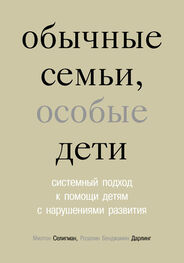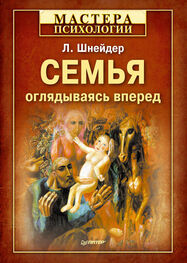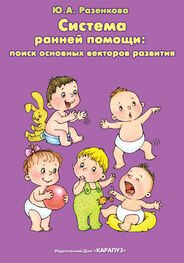Trivette, G. M., & Dunst, G. J. (1982). Proactive influences of social support in families of handicapped children. Unpublished manuscript.
Turk, D. С, & Kerns, R. D. (1985). Health, illness and families: A life-span perspective. New York: Wiley.
Turnbull, A. P., Brotherson, M. J., & Summers, J. A. (1985). The impact of deinstitutionalization on families: A family systems approach. In R. H. Bruininks (Ed.), Living and learning in the least restrictive environment (pp. 115-152). Baltimore: Brookes.
Turnbull, A. P., Patterson, J. M., Behr, S. K., Murphy, D. L., Marquis, J. G., & Blue-Banning, M. J. (1993). Cognitive coping, families, and disability. Baltimore: Brookes.
Turnbull, A. P., Summers, J. A., & Brotherson, M. J. (1986). Family life cycle: Theoretical and empirical implications and future directions for families with mentally retarded members. In J. J. Gallagher & P. M. Vietze (Eds.), Families of handicapped persons (pp. 45-65). Baltimore: Brookes.
Turnbull, A. P., & Turnbull, H. R. (1986). Families, professionals, and exceptionality. Columbus, OH: Merrill.
Turnbull, A. P., & Turnbull, H. R. (1990). Families, professionals, and exceptionality (2nd ed.). Columbus, OH: Merrill.
Turnbull, A. R, & Turnbull, H. R., Ill (in press). An analysis of self-determination within a culturally responsive family systems perspective: Balancing the family mobile. In J. Sowers (Ed.), Making our way: Promoting self-competence among children and youth with disabilities. Baltimore: Brookes.
Turnbull, H. R., & Turnbull, A. P. (Eds.). (1985). Parents speak out: Then and now. Columbus, OH: Merrill.
United States Commission on Civil Rights. (1986). Protection of handicapped newborns: Hearing held in Washington, DC, June 26-21, 1986 (Vol. II). Washington, DC: U.S. Government Printing Office.
University of Pittsburgh Office of Child Development. (1991). Black families: An inquiry into the issues. Developments, 5(1), 5-8.
Upshur, С. C. (1982). Respite care for mentally retarded and other disabled populations: Program models and family needs. Mental Retardation, 20, 2-6.
Upshur, С. C. (1991). Families and the community service maze. In M. Seligman (Ed.), The family with a handicapped child [2nd ed., pp. 91-118). Boston: Allyn & Bacon.
Vadasy, P. F (1986). Single mothers: Asocial phenomenon and population in need. In R. R. Fewell & P. F Vadasy (Eds.), Families of handicapped children (pp. 221-249). Austin, Texas: Pro-Ed.
Vadasy, P. F, & Fewell, R. R. (1986). Mothers of deaf-blind children. In R. R. Fewell & R F Vadasy (Eds.), Families of handicapped children (pp. 121-148). Austin, TX: Pro-Ed.
Vadasy, P. Е, Fewell, R. R., & Meyer, D. J. (1986). Grandparents of children with special needs: Insights into their experiences and concerns. Journal of the Division for Early Childhood, 10, 36-44.
Vadasy, R E, Fewell, R. R., Greenberg, M. Т., Desmond, N. L., & Meyer, D. J. (1986). Follow-up evaluation of the effects of involvement in the fathers program. Topics in Early Childhood Education, 6, 16-31.
Vadasy, P. E, Fewell, R. R., Meyer, D. J., & Greenberg, M. T. (1985). Supporting fathers of handicapped young children: Preliminary findings of program effects. Analysis and Intervention in Developmental Disabilities, 5, 125-137.
Varekamp, M. A., Suurmeijer, R, Rosendaal, E R., Dijck, H., Uriends, A., & Briet, E. (1990). Family burden in families with a hemophilic child. Family Systems Medicine, 8, 291-301.
Vasta, R. (1982). Strategies and techniques of child study. New York: Academic Press.
Vincent, L. J., & Salisbury, G. L. (1988). Changing economic and social influences on family involvement. Topics in Early Childhood Special Education, 12, 48-59.
Visher, E., & Visher, J. (1988). Old loyalties new ties: Therapeutic strategies with step families. New York: Brunner/Mazel.
Von Bertalanffy, L. (1968). General systems theory. New York: Braziller.
Voysey, M. (1972). Impression management by parents with disabled children. Journal of Health and Social Behavior, 13, 80-89.
Voysey, M. (1975). A constant burden: The reconstitution of family life. London: Routledge & Kegan Paul.
Waechter, E. H. (1977). Bonding problems of infants with congenital anomalies. Nursing Forum, 16, 229-318.
Waisbren, E. (1980). Parents' reactions after the birth of a developmentally disabled child. American Journal of Mental Deficiency, 84, 345-351.
Waitzkin, H. (1985). Information giving in medical care. Journal of Health and Social Behavior, 26, 81-101.
Waitzman, N. J., Romano, P. S., Scheffler, R. M., & Harris, J. A. (1995, September 22). Morbidity and mortality weekly report. Atlanta: Centers for Disease Control.
Walker, J. H. (1971). Spina bifida – and the parents. Developmental Medicine and Child Neurology, 13, 462-476.
Wallinga, C, Paquio, L., & Skeen, P. (1987). When a brother or sister is ill. Psychology Today, 42, 43.
Walsh, E (1989). The family in later life. In B. Garter & M. McGoldrick (Eds.), The changing family life cycle (2nd ed., pp. 311-332). Needham Heights, MA: Allyn & Bacon.
Wasow, M., & Wilder, L. (1983). Reflections on professionals' attitudes toward the severely mentally retarded and the chronically mentally ill: Implications for parents. Family Therapy, 10, 299-308.
Wasserman, R. (1983). Identifying the counseling needs of the siblings of mentally retarded children. Personnel and Guidance Journal, 61, 622-627.
Watson, R. L., & Midlarsky E. (1979). Reaction of mothers with mentally retarded children: A social perspective. Psychological Reports, 45, 309-310.
Wayman, K. I., Lynch, E. W., & Hanson, M. J. (1991). Home-based early intervention services: Cultural sensitivity in a family systems approach. Topics in Early Childhood Special Education, 10, 56-75.
Weisbren, S. E. (1980). Parents' reactions after the birth of a developmentally disabled child. American Journal of Mental Deficiency, 84, 345-351.
Wendeborn, J. D. (1982). Administrative considerations in treating the Hispanic patient. Clinical Management in Physical Therapy 2, 6-7.
Western Psychiatric Institute and Clinic. (1980). An intruder in the family: Families with cancer [Videotape]. Pittsburgh: University of Pittsburgh.
White, R, Benedict, M. I., Wulff, L., & Kelley, M. (1987). Physical disabilities as risk factors for child maltreatment: A selected review. American Journal of Orthopsychiatry, 57, 93-101.
Wice, В., & Fernandez, H. (1984, October). Meeting the bureaucracy face to face: Parent power in the Philadelphia schools. Exceptional Parent, pp. 36-41.
Wikler, L. (1981). Chronic stresses of families of mentally retarded children. Family Relations, 30, 281-288.
Wilcoxon, A. S. (1987). Grandparents and grandchildren: An often neglected relationship between significant others. Journal of Counseling and Development, 65, 289-290.
Williams, H. В., & Williams, E. (1979). Some aspects of childrearing practices in three minority subcultures in the United States. Journal of Negro Education, 48, 408-418.
Wilton, K., & Barbour, A. (1978). Mother-child interaction in high-risk and contrast preschoolers of low socioeconomic status. Child Development, 49, 1136-1145.
Words, H. Z., & Margolies, J. A. (1955). Parents of children of cerebral palsy. Medical Social Work, 4, 110-120.
Wright, B. A. (1983). Physical disability: A psychosocial approach (2nd ed.). New York: Harper and Row.
Читать дальше



